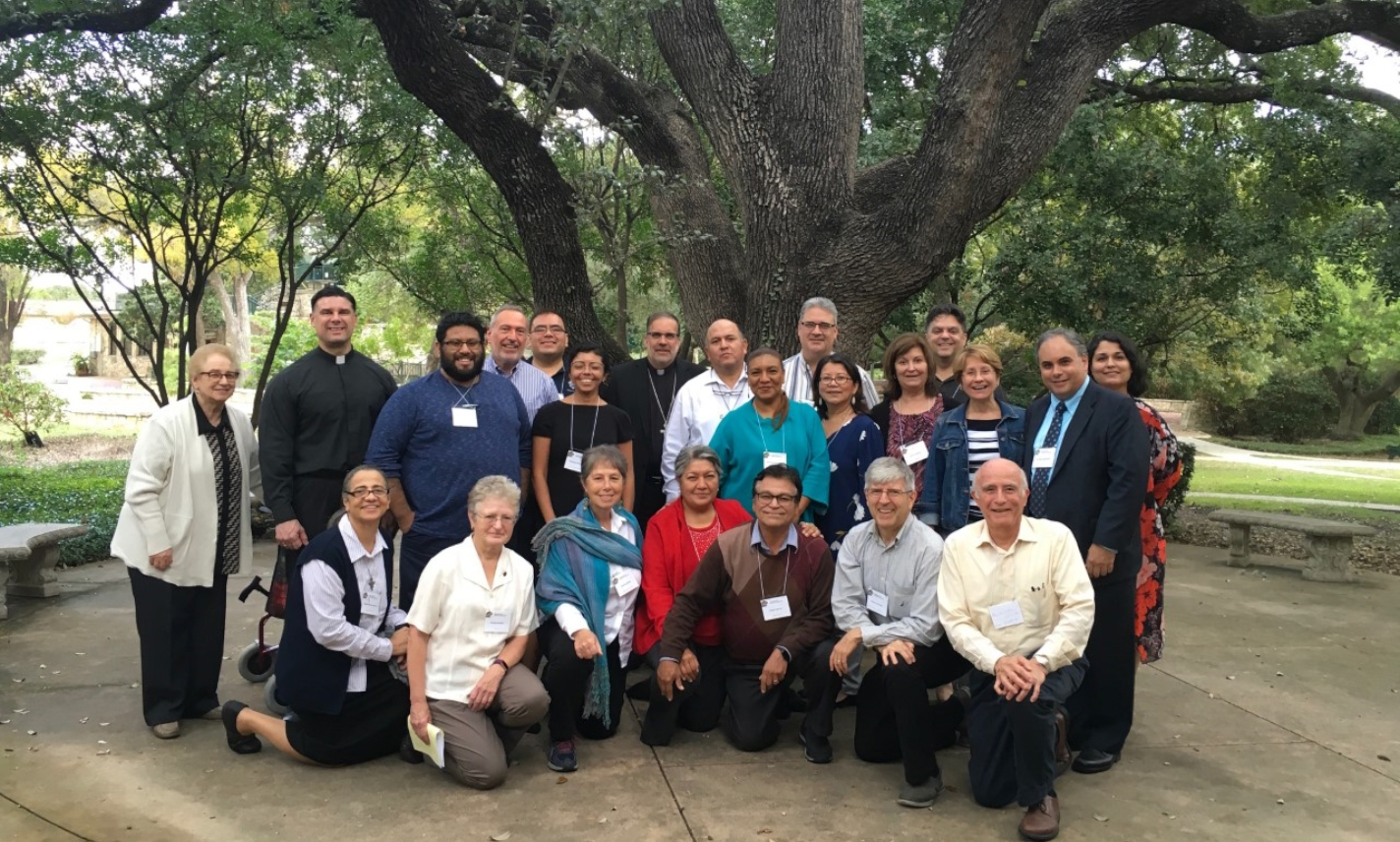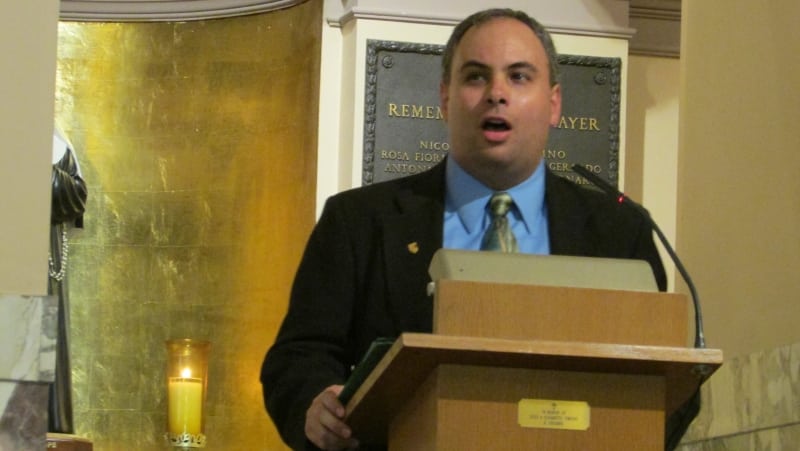As Director of Certification for Ecclesial Ministry and Service at the United States Conference of Catholic Bishops (USCCB), I have the opportunity to record video reflections on the readings of the Scriptures proclaimed at daily Mass. I do so as part of larger group of colleagues at the Conference, along with lay and ordained leaders from around the country. I am grateful for the opportunity to reflect on the meaning of the readings for the life of faith today and to share them here, along with the written text of the reflections. To view these video reflections for past and upcoming celebrations of the Eucharist, visit the USCCB website.
In the midst of the horrific persecution and killing of the Jewish people, other minority groups and Christians which took place during World War II in Germany by the Nazis, a group of committed Christians formed a witness against Nazism, even after many official Christian denominations had capitulated to Hitler’s evil policy of extermination. This group, which consisted largely of Protestants (but included some Catholics), was known as the Confessing Church – ‘confessing’ not in the sense of confessing sin, but ‘confessing’ in the sense of boldly proclaiming the care of God and of Christ for all people, and speaking out against the immorality of the Third Reich.
One of the most famous members of the Confessing Church in Germany was a Lutheran theologian named Dietrich Bonhoeffer. Imprisoned and later executed by the Nazis, he has remained, for almost a century, a clear reminder of the cost of true discipleship and witness to God’s universal love and care – which some in our own time would chose to ignore or deny altogether.
In his most famous work, The Cost of Discipleship, Bonhoeffer wrote:
“We are not Christ, but if we want to be Christians, we must have some share in Christ’s largeheartedness by acting with responsibility and in freedom when the hour comes, and by showing a real sympathy that springs, not from fear, but from the liberating and redeeming love of Christ for all who suffer. Mere waiting and looking on is not Christian behavior. The Christian is called to sympathy and action, not in the first place by one’s own sufferings, but by the suffering of others, for whose sake Christ suffered.”
Bonhoeffer’s reflections, paired with today’s readings, are a good reminder as we move through the final weeks of Lent on our pilgrimage towards Easter that our witness matters, even when it costs us. We hear from Jeremiah, the prayerful cry for God not to forget – as it sometimes seems to us that God does – the faithful witnesses who stands up when it is easier to sit down, and who speak out when it is easier to stay silent – all for the sake of those who are victims of humanity’s injustice. We are reminded by Jeremiah, the psalmist in today’s psalm, Jesus, and Bonhoeffer that our attitude of witness should be to remember that God continues to act for justice even when it seems all is lost – so we should not lose heart.
It is interesting that today’s Gospel does not feature Jesus preaching or teaching. Instead all the people are talking about him! As a faithful witness to God’s care for all, he has caused division – like Jeremiah did and like the Confessing Church did. But such division is not the product of Jesus’ message. Rather it is the result of putting that message into practice in a sinful world.
Jesus both inspires and confounds. Nicodemus tries to get his fellow religious leaders to examine the possibility that God might act in an astonishing new way? What a pity he can’t get through to them! The Gospel story ends – “each went to his own house” – back to their his comfortable place, unable to break out and experience the revolutionary love that Jesus was offering. But we know the end of the story – that the promise of God is vindicated in the dying and rising of Jesus.
These readings today, and Bonhoeffer’s witness, are good reminders that the message of the justice, love and mercy of God will always prevail, even as it, at times, makes us uncomfortable and challenges us and others to be better witnesses to that very good news! And isn’t that what Lent is all about?
God give you peace!


 Request Dr. DelMonico's professional services for a liturgical, ministerial or leadership consultation, or for an academic or public presentation.
Request Dr. DelMonico's professional services for a liturgical, ministerial or leadership consultation, or for an academic or public presentation.